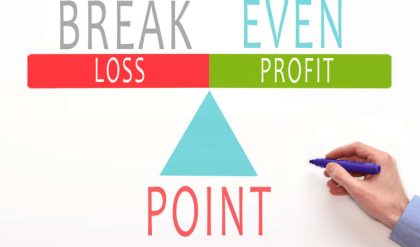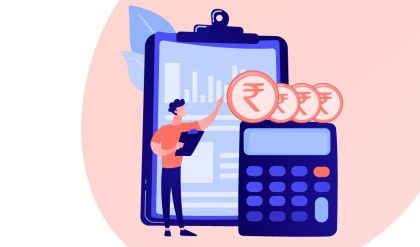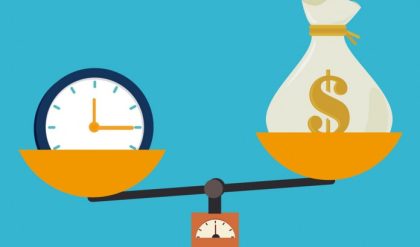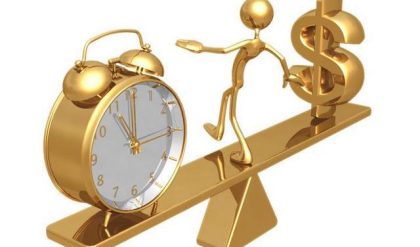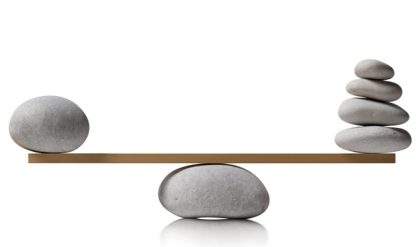Introduction
● Income distribution refers to four different topics in economics. See also the related College Economics Topic, Income Inequality. When you look around you, it’s obvious that some people are richer than others. How many are rich and how many are poor? How did it get to be that way? Does it change over time, and if so, how and why? What is the difference between income and wealth? Not all happiness comes from having a lot of money, so why is there so much emphasis on making money, anyway? These are a few of the many questions economists ask when they talk about income distribution. It is impossible to talk about the distribution of income without triggering strong feelings about wanting to help those less fortunate than you. It is equally hard to talk about the distribution of income without feeling some envy for those who are more fortunate than you. Economists recognize both of these feelings. Economists also recognize that not all happiness derives from being financially well off. We call these questions about fairness, the economics of well-being, or welfare economics. Is the difference in income because some people are just born into wealthy families or are just born with exceptional natural talents? Is it because some cultures or countries have social or government laws or institutions that encourage education, savings, social mobility, etc.? Is it good luck, hard work, free markets, property rights, government intervention, or some combination?
○ Unequal wealth or endowments. If there are just two people in the economy–say, you and someone else–and if you have lots of resources such as great soil for growing crops while the other person has lots of rocks and scrabbly soil to work around, we would say that you are rich and he is poor. In fact, in that simple two-person economy, 50% of the population is rich, and 50% of the population is poor. That’s a statistical description, a fact about the economic world in which you and the other person live. In a more complex economy with lots more people, be it a country or the entire world, it can be difficult to pin down the facts about the distribution of wealth. However, that statistical description is what economists typically mean when they talk about the distribution of income. Wealth and income are not the same. Looking at or thinking about the statistical distribution of income leads economists to many interesting questions. The first question to ask is: Why are incomes unequal? Why are some folks rich, some poor, and some in the middle? Is it because some people are naturally endowed with unusual talents, ranging from great football players like Peyton Manning, multitalented pop entertainers like Jennifer Lopez, entrepreneurs like Steve Jobs or Bill Gates, to ordinary folks who just happen to have skills and drive? Is it because some people are born into wealthy families and inherit wealth they start off with? Is it because some countries have laws and institutions that encourage education and social mobility? Is high income due to luck, effort, or a combination? If you are born with special natural talents–which economists call being “endowed” with natural talents–should you get to earn more than someone less well endowed? If you work hard, should you get to earn more? Should you get to inherit income from your parents? Should you give to charity to help those less fortunate than you? How many are in each possible group? How large is the income spread? The term “distribution of income” usually refers to getting the basic statistical facts. It is almost impossible to think or talk about these questions without getting riled up. Once the facts are clear, the term “distribution of income” may also lead into concerns about fairness. For example, since the recent financial crisis started in 2008, some people worry that the rich have gotten richer and poor have gotten poorer. People especially worry that income inequality might have become more pronounced in an unfair way. Has the gap between the rich and the poor widened? Have the poor or middle class been exploited by the rich? Is the middle class disappearing? What are the facts, and what are the possible concerns?
○ Wages, rent, and profit shares. Do markets function to distribute earnings in proportion to the contribution of work in production? How do labor markets work to apportion earnings between the share contributed by workers, the share contributed by owners or renters of machinery, buildings, energy resources, money, services, or land, and the shares contributed by the entrepreneurs or owners who may ultimately divvy up any profit that remains after paying taxes, licenses, and the wage, rent, interest, and mortgage bills?
○ Government taxation and redistribution of the tax proceeds to others. Government often redistributes income by taxing some and giving it to others. What are the pros and cons when the government collects and redistributes income? After all, parents do all the earning in a family with children and distribute their income to their children in the form of allowances, gifts, college education, and via wills to their heirs. Is the government the residual earner for the country and should it collect and then re-distribute the proceeds?
Definitions and Basics
● Distribution of Income, from the Concise Encyclopedia of Economics
● The distribution of income is central to one of the most enduring issues in political economics. On one extreme are those who argue that all incomes should be the same, or as nearly so as possible, and that a principal function of government should be to redistribute income from the haves to the have-nots. On the other extreme are those who argue that any income redistribution by government is bad….
● A statistical summary of U.S. family income distribution since World War II shows the following:
○ 1. The U.S. family income distribution is highly unequal.
○ 2. The degree of income inequality is not much greater today than it was at the end of World War II.
○ 3. Family income inequality declined slowly from 1946 through 1969, increased slowly from 1970 through 1979, and has increased somewhat faster since then….
● Redistribution, from the Concise Encyclopedia of Economics
● Since the Great Depression most Americans have agreed that a principal responsibility of government is to redistribute income from the well-to-do to the impoverished and to those who are temporarily disadvantaged, most notably the unemployed. While many people complain about waste, fraud, and abuse in government income-transfer programs, or about the extent of income redistribution, few dispute the proposition that some level of redistribution is needed. Over the last twenty years, however, many economists—including some on the political left—have raised serious questions about the effectiveness of current transfer programs in helping the poor. While government policies do redistribute enormous amounts of money each year, the actual benefits to the poor may be much smaller than people presume….
● The phrase “distribution of income” refers to a statistical distribution, not to a government collecting income and handing it out. How I Fought Envy, Part 3, by David R. Henderson. EconLog, August 20, 2011.
● The third thing that helps me when I feel envious is to realize that the language of economics has set me up, along with many others, to feel envious. Pick up any basic economics textbook and you’ll probably find a section on the distribution of income. The distribution of income is simply a statistical measure of how many people earn or receive various amounts of income. However, people, including many economists, often mistakenly talk as if society is “distributing” income and people are passively receiving it. When I think of someone distributing income, I imagine a truck backing up to a crowd of people, the tailgate coming down, and someone on the truck throwing out wads of dollar bills. If you think someone is just handing out money, then the most natural thing in the world is to think that everyone should get the same amount and that it’s unfair if they don’t….
● I have news for people who think that society is distributing income: No one is distributing. In a free society, we earn our income.
● Poverty in America, from the Concise Encyclopedia of Economics
● Poverty is one of America’s most persistent and serious problems. The United States produces more per capita than any other industrialized country, and in recent years has devoted more than $500 billion per year, or about 12 percent of its gross national product, to public assistance and social insurance programs like Social Security, Medicare, Aid to Families with Dependent Children (AFDC), food stamps, and Medicaid….
In the News and Examples
● Bruce Meyer on the Middle Class, Poverty, and Inequality. Podcast on EconTalk, October 3, 2011.
● Bruce Meyer of the University of Chicago talks with EconTalk host Russ Roberts about the middle class, poverty, and inequality. Many economists and pundits argue that the middle class has made little or no economic progress over the last 30 years, that poverty rates are stagnant or rising, and that inequality has increased dramatically. Meyer, drawing on his research over the last ten years, argues that these conclusions are either false or misleading. He argues that standard measures of economic progress and inequality are based on faulty inflation data or a misplaced focus on pre-tax income instead of post-tax income or consumption.
● Kaplan on the Inequality and the Top 1%. Podcast on EconTalk, November 7, 2011.
● Steven Kaplan of the University of Chicago talks with EconTalk host Russ Roberts about the richest Americans and income inequality. Drawing on work with Joshua Rauh, Kaplan talks about the composition of the richest 1% and 1/10 of 1%–what proportions come from the financial sector, CEOs from non-financial corporations, athletes, lawyers and so on. Then he discusses how the incomes of these different groups have changed over time. Kaplan argues that these groups have increased their incomes by similar proportions, suggesting that a failure of corporate governance is not the explanation of rising CEO pay. The discussion closes with a discussion of the financial crisis and the compensation in the financial sector.
● Robert Frank on Inequality. Podcast on EconTalk, Nov. 15, 2010.
● Robert Frank of Cornell University talks with EconTalk host Russ Roberts about inequality. Is there a role for public policy in mitigating income inequality? Is such intervention justified or effective? The conversation delves into both the philosophical and empirical evidence behind differing answers to these questions. Ultimately, Frank argues for a steeply rising tax rate on consumption that would reduce disparities in consumption. This is a lively back-and-forth about a very timely topic.
● Talents and skills are distributed unequally. Equality and Respect, a LearnLiberty video.
● What do we mean when we talk about equality? How does equality relate to our concept of respect for others? Philosophy professor Aeon Skoble challenges students to take a fresh look at two seemingly familiar ideas.
● Bernstein on Inequality. Podcast on EconTalk, October 6, 2008.
● William Bernstein, author of A Splendid Exchange, talks with EconTalk host Russ Roberts about inequality. Bernstein is worried about it; Roberts is not. Bernstein argues that inequality is damaging to the health of low-status people and hurts the health of the economy. Roberts challenges Bernstein’s empirical evidence. It’s a lively conversation on the economics of status, productivity and the progressivity of taxes.
● Thomas Sowell on Economic Facts and Fallacies. Podcast on EconTalk, February 25, 2008.
● Thomas Sowell of Stanford University’s Hoover Institution talks with EconTalk host Russ Roberts about the ideas in his new book, Economic Facts and Fallacies. He discusses the misleading nature of measured income inequality, CEO pay, why nations grow or stay poor, the role of intellectuals and experts in designing public policy, and immigration….
● Richard Epstein on Happiness, Inequality, and Envy. Podcast on EconTalk, November 3, 2008.
● Richard Epstein of the University of Chicago talks with EconTalk host Russ Roberts about the relationship between happiness and wealth, the effects of inequality on happiness, and the economics of envy and altruism. He also applies the theory of evolution to explain some of the findings of the happiness literature….
● Ugly Betty and the telenovela’s depiction of how to get rich: Global Soap: Poverty Bears a Woman’s Face, by Ibsen Martinez. Econlib, November 7, 2005.
● Strikingly, the telenovela only rarely tells the tale of how a family business is founded and becomes prosperous. The family fortune is already there when the story begins. The soap opera limits itself to narrating how someone recoups a stolen inheritance. Invariably, that someone is a woman.
● The focus on legacies underscores the central role of the rights of succession in nearly all of Latin America, where it is seen both in fiction and in real life as the way to get rich. Perhaps because of that, the question asked in the most successful telenovelas isn’t, “Who shot the woman?,” but, “Who is the woman’s real father?” Of equal importance: “Will she able to prove it?”…
● Humorous essay. 0-sum games like income redistribution are more exciting than economic fundamentals like the gains from trade. Why is Economics So Boring?, by Donald Cox. Econlib, November 7, 2005.
● Stan: Ollie, you know the worst part about being an economist? You meet someone at a cocktail party, you tell them you teach economics.
● Ollie: …and they say “Oh, yeah, I took that in college. I hated it. It was sooo boring!”…
● … getting the credit for Equation 14 is a zero sum game. And we care about zero sum games. There’s drama. There’s tension. There’s a loser for every winner. It makes for good TV, doesn’t it? But it’s not very common in reality. What common in reality is both sides are better off. The buyer and the seller of the car in the ad. That’s reality. No violence, no theft. Boring balloons. Boring happy people. Economics is boring….
● Why not just take all the money away from the wealthy? The Rich and the Poor: A Fairy Tale, by Jane Haldimand Marcet in John Hopkins’s Notions on Political Economy. 1831.
● In the time of the Fairies, things went on no better than they do at present. John Hopkins, a poor labourer, who had a large family of children to support upon very scanty wages, applied to a Fairy for assistance. “Here am I half starving,” said he, “while my landlord rides about in a fine carriage; his children are pampered with the most dainty fare, and even his servants are bedizened with gaudy liveries: in a word, rich men, by their extravagance, deprive us poor men of bread. In order to gratify them with luxuries, we are debarred almost the necessaries of life.”…
A Little History: Primary Sources and References
● Politics and Welfare: The Political Economy of the English Poor Laws, by George Boyer on Econlib.
● Economists and even some politicians are skeptical of the need for agricultural subsidies in America. Yet just this past year, Congress increased such subsidies dramatically. The persistence of agricultural subsidies often is attributed to the political power of farmers. When every state gets two senators, those from farm states get clout out of proportion to the population they represent.
● The political power of farmers also helps explain a political economy puzzle of the early nineteenth century. Between 1780 and 1820, aid to the poor in England more than doubled. No other western European country experienced such a rapid increase in relief spending. As a result, poor relief expenditures as a share of national product were significantly higher in England than elsewhere in western Europe from 1795 to 1834. How and why this increase in spending occurred largely is a political story—a story of how farmers used the Poor Law to reduce their labor costs, by substituting relief benefits for wage payments. The increase in relief expenditures helped subsidize farmers at the expense of non-farming taxpayers. By the second decade of the nineteenth century relief spending was so high that it alarmed the British public…
The Economics of Welfare, by Arthur Pigou.
Advanced Resources
● Income distribution over time is mismeasured because of positional goods: Economic Growth and True Inequality (Part 1) and Irreducible Inequality (Part 2), John V.C. Nye. Econlib, January 28, 2002 and April 1, 2002.
● Studies of income inequality focus on the widening gap between the have-a-littles and the have-a-lot-mores. Many are sure that whatever gains in progress may have come were disproportionately enjoyed by the wealthiest and most economically successful groups…. [from Part 1]
● Our understanding of the rich and the poor has been skewed by what we choose to measure, and not realizing how different are the classes of goods that the rich and poor consume…. [from Part 1]
● First, consider what are known as positional goods. As first elaborated by the economist Fred Hirsch, positional goods are those products and services which are inherently impossible to mass produce because their value is mostly, if not exclusively, a function of their relative desirability. Consider a simple ranking of the best restaurants. Assume for simplicity that the best restaurants are the most fashionable and most desirable eateries. However good the general run of restaurants are, the most favored top shops are still better, more desirable, and more exclusive than the others…. [from Part 2]
● What philosophers have to say about income redistribution: Schmidtz on Rawls, Nozick, and Justice, podcast on EconTalk. May 7, 2012.
● David Schmidtz of the University of Arizona talks with EconTalk host Russ Roberts about the work of John Rawls and Robert Nozick. The conversation covers the basic ideas of Rawls and Nozick on inequality and justice and the appropriate role of the state in taxation and property rights….
● The Distribution of Wealth, by John Bates Clark
● For practical men, and hence for students, supreme importance attaches to one economic problem—that of the distribution of wealth among different claimants. Is there a natural law according to which the income of society is divided into wages, interest and profits? If so, what is that law? This is the problem which demands solution….
